Most poker pros spend 99% of their time playing online, but almost everyone likes to test themselves in a live environment every now and then. Live poker, both cash games and tournaments, offers a unique experience, and quite often, it’s totally different from your regular online poker game. We’ve already covered what you should have in mind before your first trip to a casino. Now it’s time to spell out the proper poker etiquette if live poker is something you’d like to dive into.
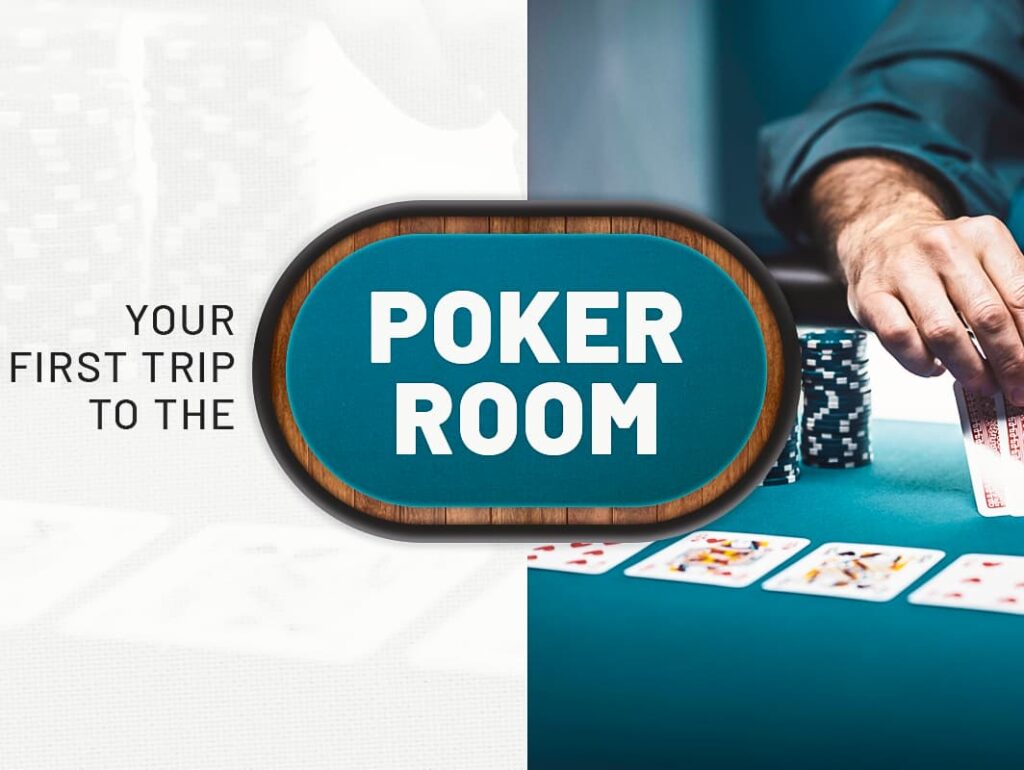
The official poker rules are always the same
It doesn’t matter if you play online or live; as long as you have a decent idea of what you are doing, you should do just fine. There are, however, some unwritten poker rules which apply only to live games simply because of technical differences from their online counterparts.
Let’s look at live poker etiquette: things you should and shouldn’t do in live poker rooms.
Do not take more time than necessary
Tanking is the bane of the modern poker world. While playing online, every player has only so much time to make a decision, and once your time bank is gone, you have to act quite fast. In live games, there is no clock (unless somebody at the table calls it), and some players tend to abuse that.
We get it; some decisions are challenging and require much thinking about your opponent’s betting line and other factors. To be fair, even in a fairly straightforward spot, taking a few seconds more before making an action can be beneficial to your overall game plan, but there’s absolutely no need to wait 15 seconds before you fold 92o on UTG. If you know your hand is a clear fold, fold it.
Some ‘pros’ love to take an absurd amount of time before making an easy decision, but we can’t really think of any valid reason to do so. Do not be that guy – do not waste time at the poker table. It does not benefit anyone; think long only when necessary.
Show your card quickly at showdown
If the action reaches the showdown, show your card quickly, especially if you are likely to hold a winning hand. Be aware that different casinos can have different rules regarding the order in which players should show their hands at the river. Ask your dealer what the home rules are – it’ll save time and help avoid confusion about who has to show their hand first.
Also, avoid acting like you’ve lost when you’re aware that you’ve most likely won. Pretending to have ‘air’ only to turn a winning hand a few seconds later is frowned upon, and it’s a way to introduce unnecessary tension into the game and make you look like a douche.
Do not act out of turn
Be aware of what’s going on. Not paying attention is probably the biggest fault of online players who fold their cards before the action reaches them. At the live table, the game flow is way slower, so you have to be patient – acting out of turn disrupts the flow of the hand and sometimes may alter the outcome of the hand. Moreover, if done habitually, it can earn you a penalty in a tournament.
Awareness of what’s going on is a good way to stay more focused on the game and also helps you develop reads about what other players are up to. A good way to avoid acting out of turn is to look at your hole cards when the actions reach you. However, if the hand moved to the later betting round, there is no way around that; you have to patiently wait for your turn even if you know you’re going to fold.
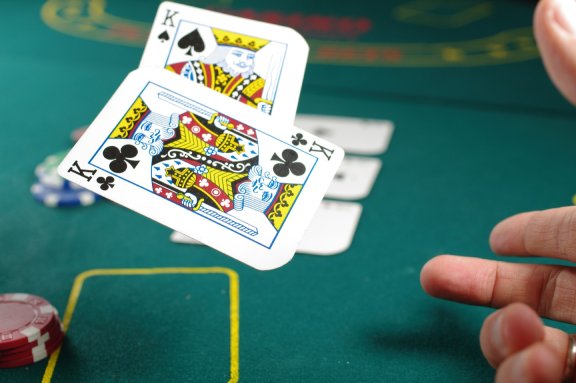
Do not preach, and do not berate other players
While losing a big pot to a poker player who clearly has no idea what they are doing might be very frustrating, it never validates you to berate them or comment on their game. It’s very rude to point out someone’s mistakes, and it tends to spoil the game itself. Moreover, if you can’t help yourself commenting on others’ plays, it’s likely a result of your mindset leak.
You can’t control what other poker players do, think, or how they play. Remember that the vast majority of people play poker for fun and to have a good time. They are not willing to be schooled or berated; they want to spend some time playing a game they like. Let them feel good and focus on winning the most chips you can in the hands to come.
Do not influence the action when not in the hand
If you have already folded, try not to disrupt the hand being played. That includes a few things. Firstly, try to keep the conversation you are engaged in quiet so as not to distract the players in hand – that also includes not talking to the players still involved in the hand.
Moreover, do not comment on the action or community cards. It’s very disappointing to see you would have flopped a set when you almost called the preflop bet but folded. Or when you know that you’ve folded the ace of spades when the fourth spade hit the river. Keep that information to yourself until the end of the hand, as your reactions or talk can give away what you had and change the hand drastically for the players still in.
Do not angle shoot
Angle shooting is a highly disliked behaviour as it is borderline cheating. What’s considered angle shooting? Taking an action designed to intentionally deceive other players or bend the rules of the game.
The most obvious example is saying ‘raise’ and then throwing the number of chips sufficient only for a call into the pot. The poker rules are quite straightforward in such cases: the player who did so must min-raise. There have been many situations where players did this on purpose, only to confuse their opponents. The most infamous instance of such behaviour happened on the final table of EPT Madrid in 2011.
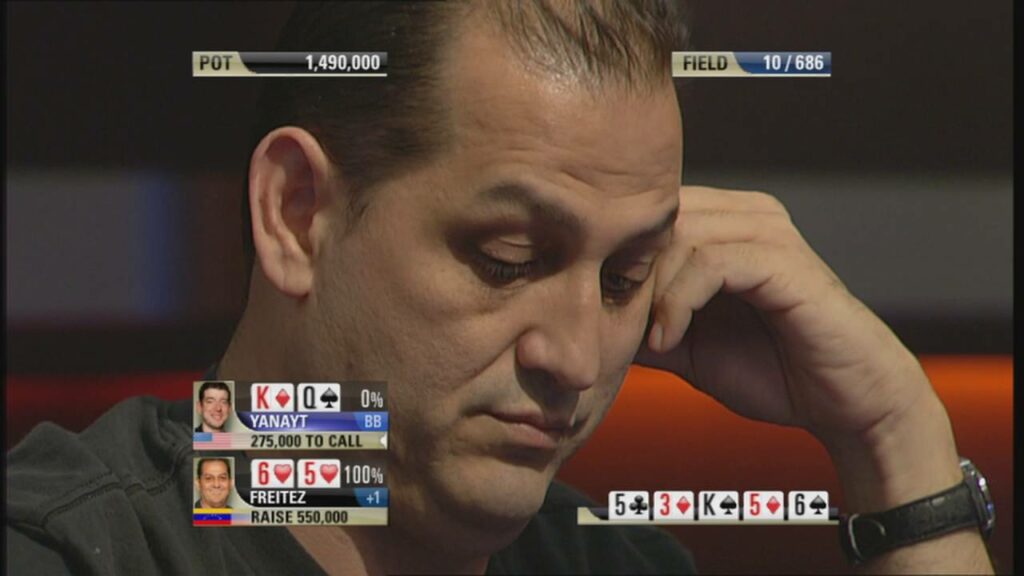
Do not be that guy.
Other examples of angle shooting include:
- String betting (not putting chips into the pot in one motion).
- Faking a call or a fold to induce a reaction from an opponent.
- Intentionally hiding the information of how many chips you have or pretending to check to see what players after you are willing to do.
Be a fair winner and loser
You’ll win or lose a very big pot every now and then. It’s a great feeling to be on the better side of the set over set situation and it sucks to be on the losing end. Whichever happens to you, remember that exaggerated celebration or bitterly complaining about the loss is considered to be poor etiquette.
After all, that’s part of poker; you know what you’ve signed up for. If you have just won a big pot, stack your chip and optionally tip a dealer. If you’ve lost, pat the table, say ‘nice hand’, and move on.
Definitely don’t be that guy:
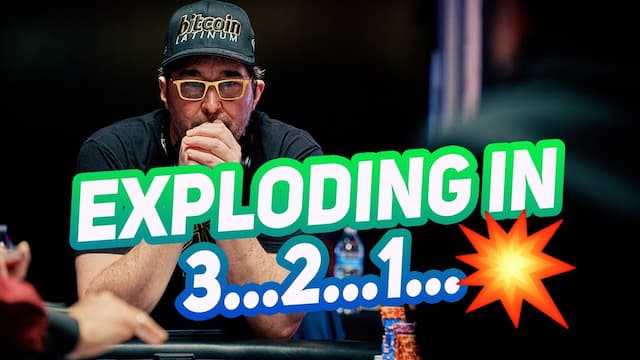
If you want to learn more about Phil Hellmuth – read our dedicated article about him: Why Phil Hellmuth couldn’t be a top Spin & Go player?
Do not slow roll
Slow rolling is considered one of the most frustrating behaviours at the poker table, and it’s one of the most disrespectful moves you can make against your opponent. In case you’re not aware of what we mean, a slow roll is deliberately delaying your action when it’s obvious that you have the best hand, i.e. calling your opponent all in with the nuts after a long time.
It’s never fun to be slow-rolled – it’s a big no-no. If you slow roll others, karma will sooner or later get you, just like in this poker hand:

Always respect the dealer
Playing poker can be very frustrating, and it’s quite easy to blame everything and everyone for your loss. That frustration is an integral part of the game, and you must learn how to deal with it yourself.
Blaming dealers for your misfortunes and venting your anger on them is a sign of bad manners and should never be the case. Remember, that’s their job, and they have nothing to do with you running poorly. Being a dealer is not an easy job, and usually, it’s not well paid either, so if you’re really unlucky, focus on things you control, and remember, everyone, suffers from a painful bad beat from time to time.
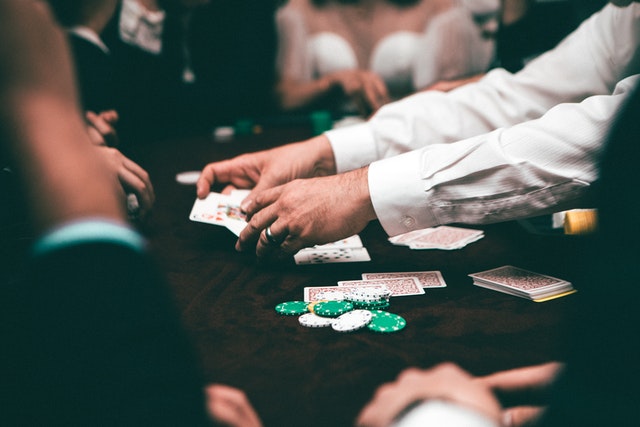
Above all, be a decent human being
Remember that live games are full of recreational players who just want to have fun. Allow them to do so, and treat them with respect. Following poker etiquette usually results in a friendlier atmosphere, which translates into a better game. And we probably do not have to tell you that you earn the most money in such games.
There are many unwritten rules in live poker
Most of them follow common sense, but some poker rooms have their own policies. Usually, it’s a good idea to watch how the experienced players at the table behave, and you can always ask people around you or the casino staff what the house rules are.
Whenever you play a live cash game or a tournament, remember: pay attention to what’s going on, be kind to other players and have fun – that’s an attitude you can’t go wrong with.
